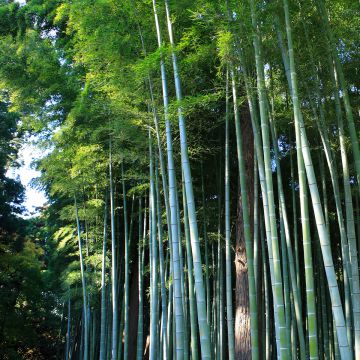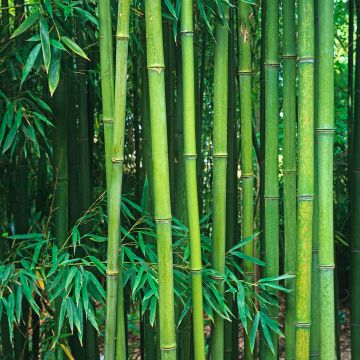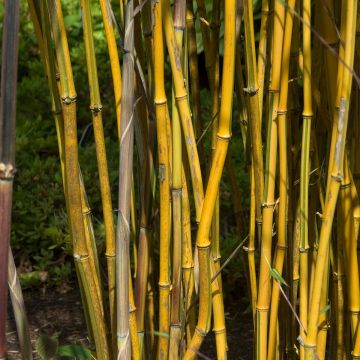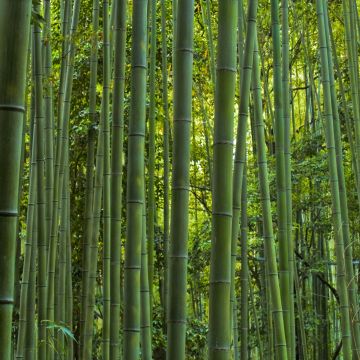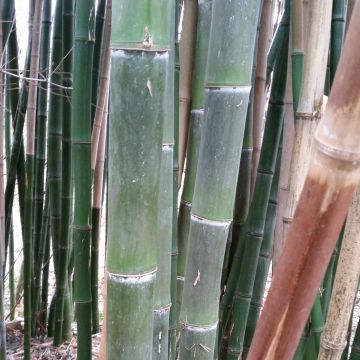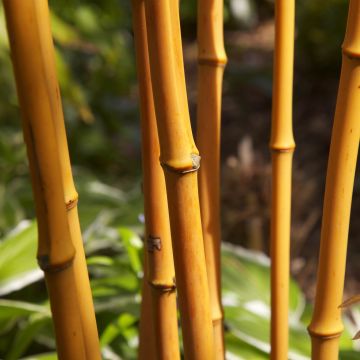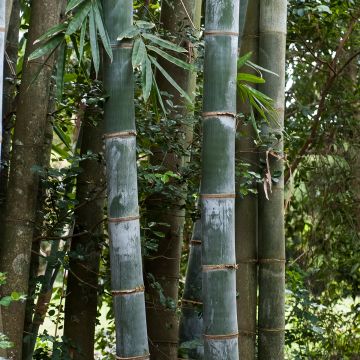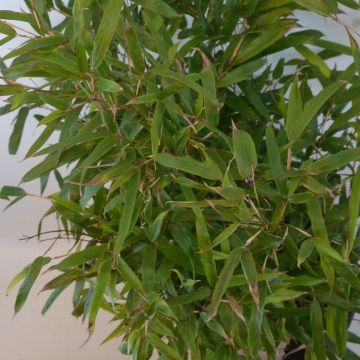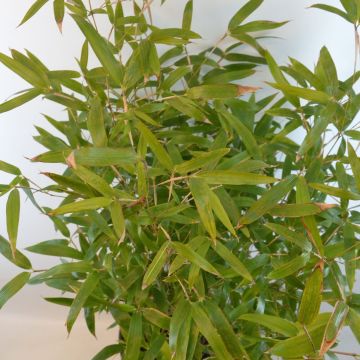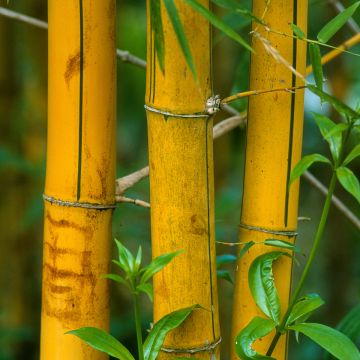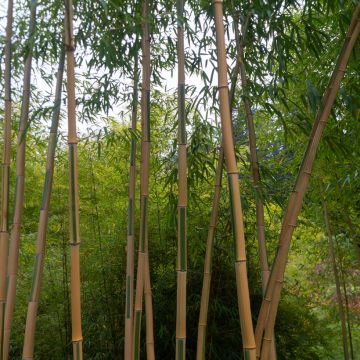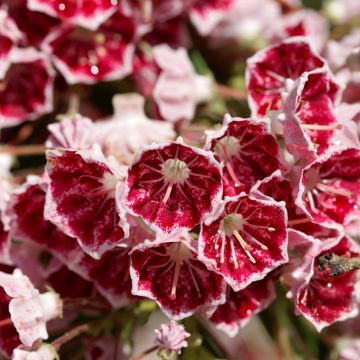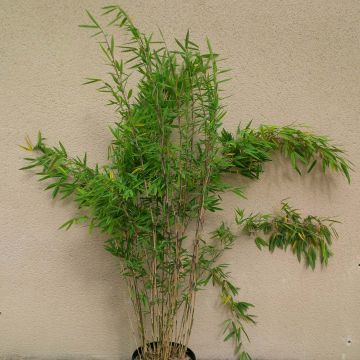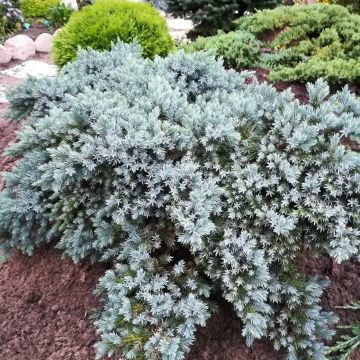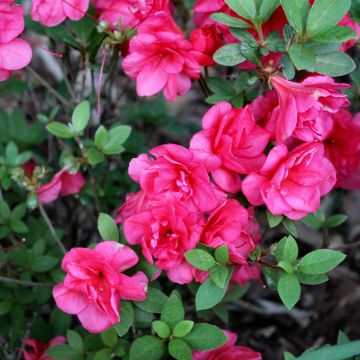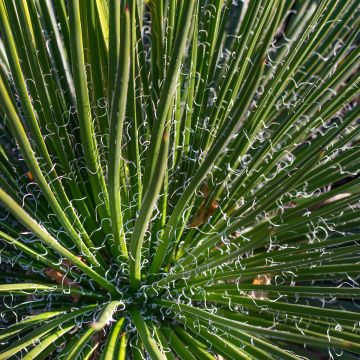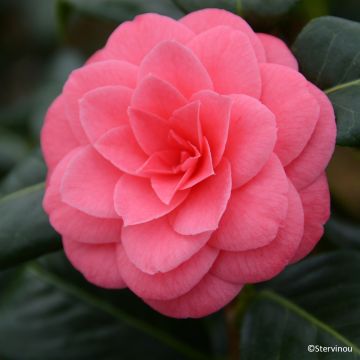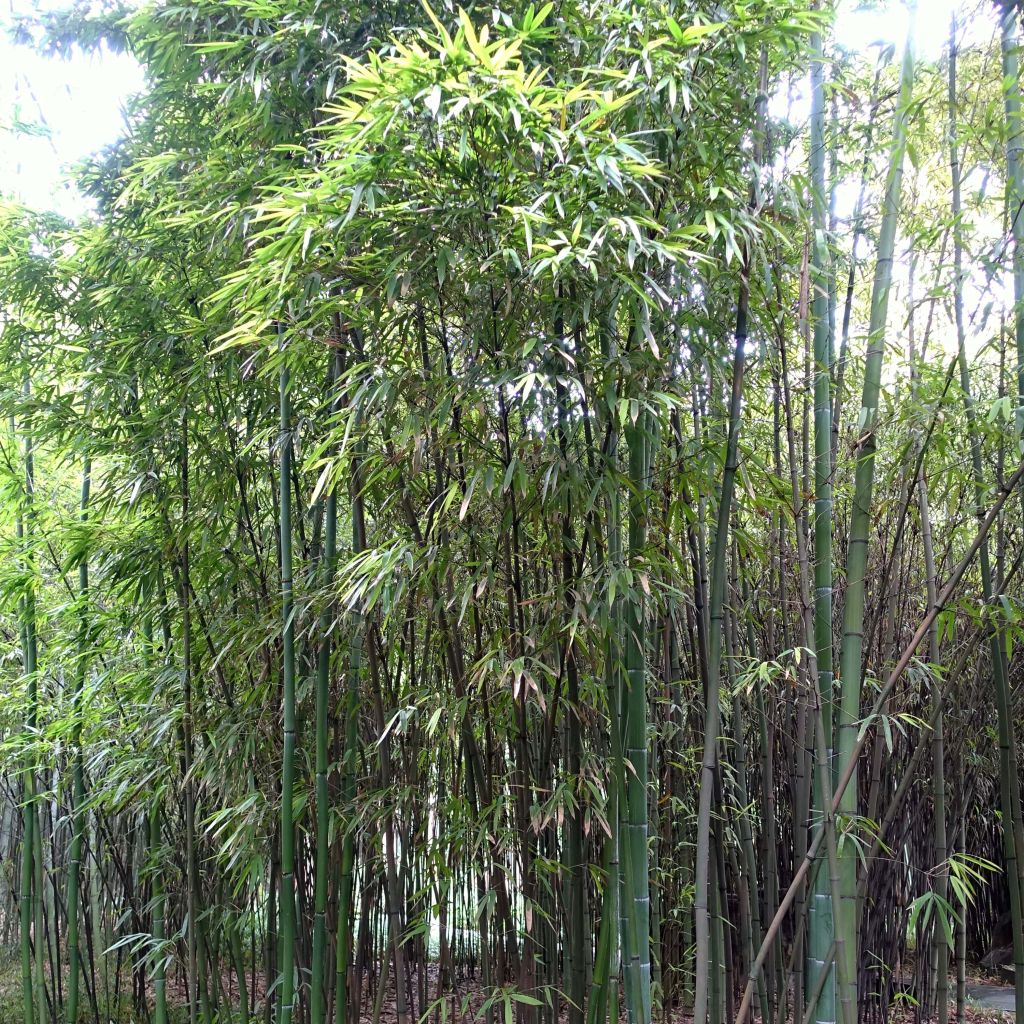

Phyllostachys iridescens - Bambou géant
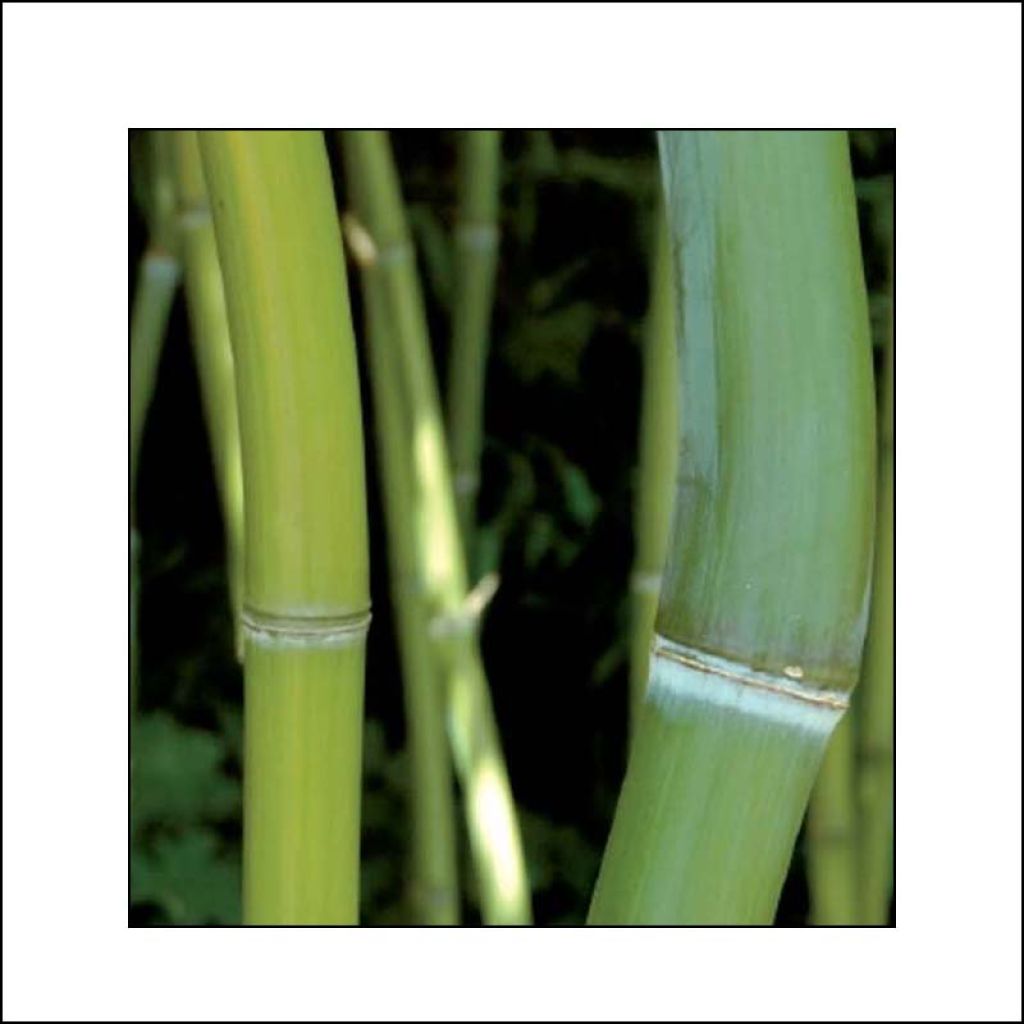

Phyllostachys iridescens - Bambou géant
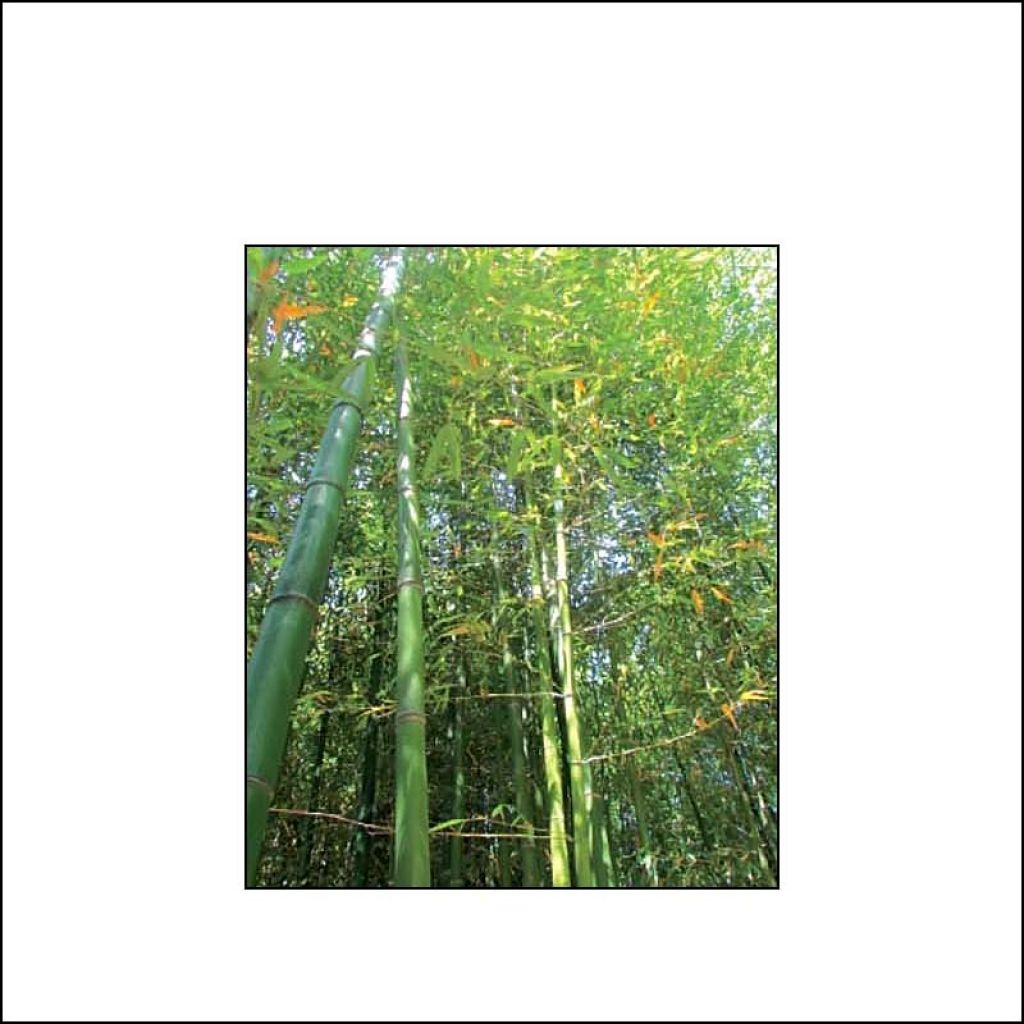

Phyllostachys iridescens - Bambou géant
Phyllostachys iridescens - Bamboo
Phyllostachys iridescens
Beautiful bamboo! Rapid shoot, completely exotic..
beatrice, 04/05/2023
Special offer!
Receive a €20 voucher for any order over €90 (excluding delivery costs, credit notes, and plastic-free options)!
1- Add your favorite plants to your cart.
2- Once you have reached €90, confirm your order (you can even choose the delivery date!).
3- As soon as your order is shipped, you will receive an email containing your voucher code, valid for 3 months (90 days).
Your voucher is unique and can only be used once, for any order with a minimum value of €20, excluding delivery costs.
Can be combined with other current offers, non-divisible and non-refundable.
Why not try an alternative variety in stock?
View all →This plant carries a 24 months recovery warranty
More information
We guarantee the quality of our plants for a full growing cycle, and will replace at our expense any plant that fails to recover under normal climatic and planting conditions.

Would this plant suit my garden?
Set up your Plantfit profile →
Description
Phyllostachys iridescens is a giant bamboo that is still relatively unknown and under-utilized, introduced to the Netherlands in 1984. With its green culms lightly striped with pale green or yellow, adorned with grey-blue rings, its upright habit and dark green foliage, it is nevertheless one of the most elegant and original. In the garden, it may take some time to establish itself, but then it quickly spreads into a grove, making the most of the space allocated to it. Give it a sunny exposure and a cool, fertile, and well-drained soil.
Originally from southeastern China, specifically in the coastal provinces around Shanghai, Phyllostachys iridescens belongs to the Poaceae family. It is a type of giant grass with woody stems and a very spreading rhizomatous stump. This giant bamboo has an upright habit, particularly slender. It is capable of withstanding temperatures as low as -22°C (1°F), and it grows well in both sun and shade, preferring fertile and cool, well-drained soils. Its shallow and spreading rhizomes are capable of colonizing vast areas over time. The plant produces young shoots or culms covered with decorative red sheaths that unravel into coloured ribbons, giving it its Chinese name (hong ke zhu), which can be translated as red-skinned bamboo. They then rapidly shoot up to the sky, reaching heights of up to 10 or 12 metres (33 or 39 feet) depending on the growing conditions. These straight and resistant culms can reach a diameter of 10cm (4in), even in our cool climates. Each culm is characterized by emerald green nodes with subtle pale yellow or tender green stripes running along their entire length. Under each node, a grey-blue ring can be observed. Over time, the culms take on a more yellowish hue. The evergreen leaves are dark green, narrow, lanceolate, tapering at their tips, and measuring 15 to 20cm (6 to 8in) in length.
Phyllostachys iridescens is starting to make its way into gardens, especially in northern Europe where it appreciates the climate. It is often planted as a solitary clump, in groves, or as an informal hedge. In contemporary-style gardens, it pairs well with certain palm trees and tall ornamental grasses like Pennisetums, Deschampsias, or Miscanthus. It can be associated with other giant bamboos, playing with the colours of the culms. Its young shoots are edible and tasty, and its culms, which rival the strength of steel, are often used as stakes or for building pergolas and fences. Its extensive growth is not well-suited for container cultivation.
Tip: Limit the spread of the spreading rhizomes of this bamboo by installing "anti-rhizome barriers" made of resin plates vertically planted in the ground from the time of planting.
Phyllostachys iridescens is highly appreciated in China for its beauty, as well as the qualities of its wood and the flavour of its young shoots.
Report an error about the product description
Phyllostachys iridescens - Bamboo in pictures
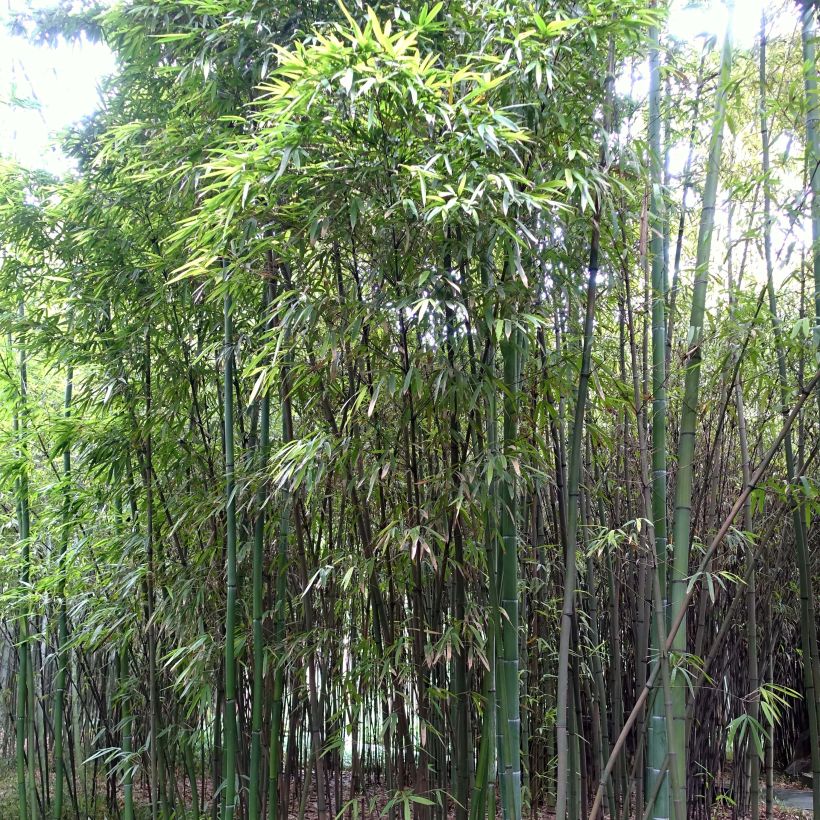

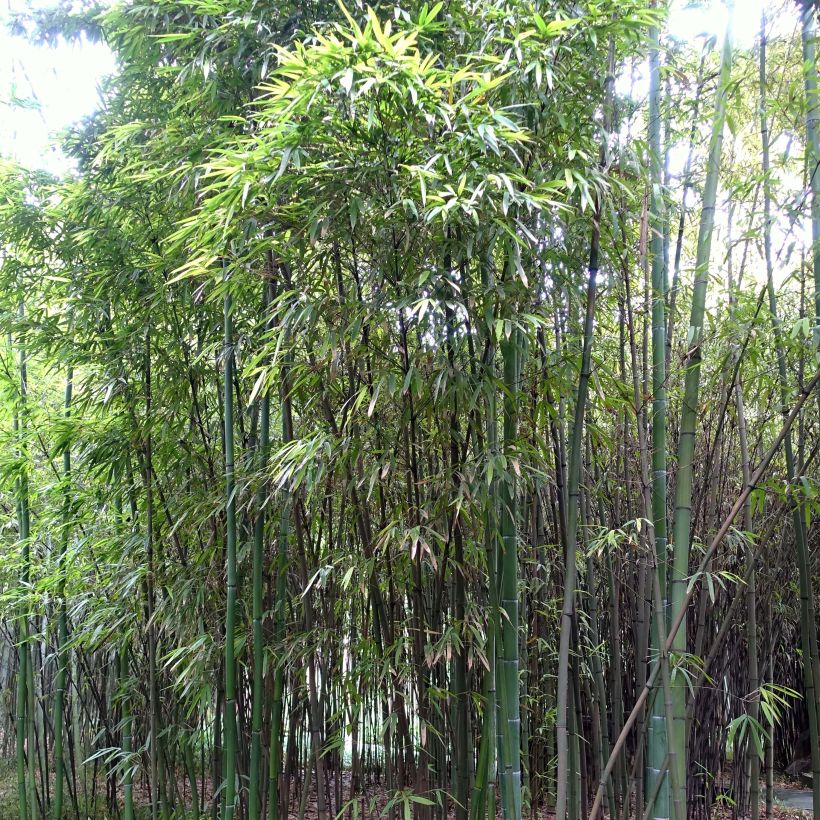

Plant habit
Foliage
Botanical data
Phyllostachys
iridescens
Poaceae
China
Other Phyllostachys
View all →Planting and care
Phyllostachys iridescens is planted in spring or autumn with organic amendment and prefers fertile soils. The ideal period is between September and November, when the plant develops its rootstock. Resistant to -22°C (1°F), it still fears waterlogged soils in winter. It grows in rich, deep, consistent but well-drained soil, moist but not soggy in summer, in sunny, light shade or even denser shade. Mulch the young stump and water generously. Apply nitrogen fertilizer in February-March, then in July-August. Divide old clumps in spring. Protect it from cold and dry winds in winter. Beware of slugs that like young shoots. Limit the proliferation of trailing rootstocks of this bamboo by installing "anti-rootstock barriers" from the start of planting, which are resin plates inserted vertically into the ground.
This bamboo is well adapted to the climate of northern Europe. To help it better withstand the summer heat that prevails in some of our regions, plant it in deep soil and provide it with very abundant but spaced waterings: the rootstocks will sink deep into the soil to store moisture.
Planting period
Intended location
Care
-
, onOrder confirmed
Reply from on Promesse de fleurs
Similar products
Haven't found what you were looking for?
Hardiness is the lowest winter temperature a plant can endure without suffering serious damage or even dying. However, hardiness is affected by location (a sheltered area, such as a patio), protection (winter cover) and soil type (hardiness is improved by well-drained soil).

Photo Sharing Terms & Conditions
In order to encourage gardeners to interact and share their experiences, Promesse de fleurs offers various media enabling content to be uploaded onto its Site - in particular via the ‘Photo sharing’ module.
The User agrees to refrain from:
- Posting any content that is illegal, prejudicial, insulting, racist, inciteful to hatred, revisionist, contrary to public decency, that infringes on privacy or on the privacy rights of third parties, in particular the publicity rights of persons and goods, intellectual property rights, or the right to privacy.
- Submitting content on behalf of a third party;
- Impersonate the identity of a third party and/or publish any personal information about a third party;
In general, the User undertakes to refrain from any unethical behaviour.
All Content (in particular text, comments, files, images, photos, videos, creative works, etc.), which may be subject to property or intellectual property rights, image or other private rights, shall remain the property of the User, subject to the limited rights granted by the terms of the licence granted by Promesse de fleurs as stated below. Users are at liberty to publish or not to publish such Content on the Site, notably via the ‘Photo Sharing’ facility, and accept that this Content shall be made public and freely accessible, notably on the Internet.
Users further acknowledge, undertake to have ,and guarantee that they hold all necessary rights and permissions to publish such material on the Site, in particular with regard to the legislation in force pertaining to any privacy, property, intellectual property, image, or contractual rights, or rights of any other nature. By publishing such Content on the Site, Users acknowledge accepting full liability as publishers of the Content within the meaning of the law, and grant Promesse de fleurs, free of charge, an inclusive, worldwide licence for the said Content for the entire duration of its publication, including all reproduction, representation, up/downloading, displaying, performing, transmission, and storage rights.
Users also grant permission for their name to be linked to the Content and accept that this link may not always be made available.
By engaging in posting material, Users consent to their Content becoming automatically accessible on the Internet, in particular on other sites and/or blogs and/or web pages of the Promesse de fleurs site, including in particular social pages and the Promesse de fleurs catalogue.
Users may secure the removal of entrusted content free of charge by issuing a simple request via our contact form.
The flowering period indicated on our website applies to countries and regions located in USDA zone 8 (France, the United Kingdom, Ireland, the Netherlands, etc.)
It will vary according to where you live:
- In zones 9 to 10 (Italy, Spain, Greece, etc.), flowering will occur about 2 to 4 weeks earlier.
- In zones 6 to 7 (Germany, Poland, Slovenia, and lower mountainous regions), flowering will be delayed by 2 to 3 weeks.
- In zone 5 (Central Europe, Scandinavia), blooming will be delayed by 3 to 5 weeks.
In temperate climates, pruning of spring-flowering shrubs (forsythia, spireas, etc.) should be done just after flowering.
Pruning of summer-flowering shrubs (Indian Lilac, Perovskia, etc.) can be done in winter or spring.
In cold regions as well as with frost-sensitive plants, avoid pruning too early when severe frosts may still occur.
The planting period indicated on our website applies to countries and regions located in USDA zone 8 (France, United Kingdom, Ireland, Netherlands).
It will vary according to where you live:
- In Mediterranean zones (Marseille, Madrid, Milan, etc.), autumn and winter are the best planting periods.
- In continental zones (Strasbourg, Munich, Vienna, etc.), delay planting by 2 to 3 weeks in spring and bring it forward by 2 to 4 weeks in autumn.
- In mountainous regions (the Alps, Pyrenees, Carpathians, etc.), it is best to plant in late spring (May-June) or late summer (August-September).
The harvesting period indicated on our website applies to countries and regions in USDA zone 8 (France, England, Ireland, the Netherlands).
In colder areas (Scandinavia, Poland, Austria...) fruit and vegetable harvests are likely to be delayed by 3-4 weeks.
In warmer areas (Italy, Spain, Greece, etc.), harvesting will probably take place earlier, depending on weather conditions.
The sowing periods indicated on our website apply to countries and regions within USDA Zone 8 (France, UK, Ireland, Netherlands).
In colder areas (Scandinavia, Poland, Austria...), delay any outdoor sowing by 3-4 weeks, or sow under glass.
In warmer climes (Italy, Spain, Greece, etc.), bring outdoor sowing forward by a few weeks.






























